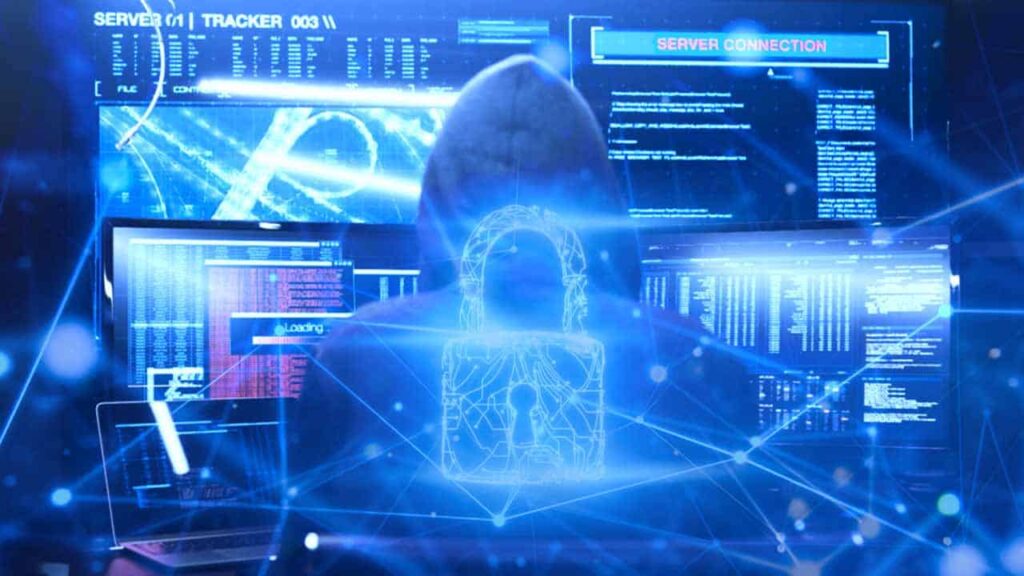In the digital age, with cyber threats evolving rapidly, it’s paramount for individuals and businesses to prioritize cybersecurity. Enhancing one’s cybersecurity skills is no longer a luxury but a necessity. As we entrust more of our personal and professional data online, the demand for cybersecurity professionals rises.
For those eager to lead in this field, it’s crucial to continuously upgrade and stay ahead of the curve. Here’s a comprehensive guide to improving your cybersecurity skills and remaining competitive in this high-demand sector.
1. Understand the Basics
Grasping the foundational concepts of cybersecurity is the first step to becoming proficient in this domain. Cybersecurity isn’t just for tech experts; everyone can benefit from understanding its core elements.
By learning about basic threats like malware, which are malicious software programs, or phishing, which are deceitful attempts to gather sensitive information, you can protect yourself and others better.
Another basic concept is firewalls, which act as barriers between your device and potential threats from the internet. These foundational pieces of knowledge are essential for anyone looking to delve deeper into cybersecurity.
2. Pursue Advanced Education

After starting out in the field, it is important to continue your growth by pursuing a structured advanced educational program in cybersecurity. As cyber threats become more advanced, it’s vital to stay informed and updated. Education equips you with the necessary skills to tackle these challenges head-on.
With the rise of online education, learners have an added advantage. They can access quality education, even a master of cyber security online, without stepping out of their homes. By enrolling in such courses, students get to explore the nuances of cybersecurity.
The best part? They can learn at their own pace from the comfort of their living room. In this digital age, leveraging online education can be the key to mastering cybersecurity and staying ahead in the industry.
3. Networking
When you interact with professionals who have been in the field for some time, you can learn from their experiences and pick up valuable advice. Online forums are great platforms to ask questions, share knowledge, and discuss the latest trends.
Seminars, on the other hand, offer a chance to listen to experts and dive deep into specific topics. Being active in cybersecurity groups or communities can also open doors to new job opportunities. Sometimes, it’s not just about what you know but who you know.
By connecting with the right people, you can stay updated on industry changes, learn about best practices, and even discover shortcuts to reach your career goals in cybersecurity more efficiently.
4. Stay Updated
Cyber threats aren’t static; they evolve as technology advances. By regularly following cybersecurity news, you can stay informed about the newest types of attacks and the latest defense strategies. Reading blogs from trusted experts can also offer deeper insights into specific topics, while forums can be a space for real-time discussions about current issues.
This continuous learning process ensures that you’re not caught off guard by novel threats. Moreover, being proactive in gathering this knowledge can give you an edge in your career.
5. Take on Challenges
Engaging in challenges can greatly enhance your cybersecurity skills. Capture The Flag (CTF) challenges are among the most popular in this field. In these contests, participants are tasked with finding hidden pieces of data within computer systems.
It’s a practical way to apply theoretical knowledge and see how you fare against real-world obstacles. Not only do you get to test your skills, but you also learn from your successes and mistakes.
Additionally, cybersecurity competitions often attract industry leaders and experts. By excelling in these events, you can grab their attention, which could open doors to new career opportunities.
Furthermore, these challenges can be a great way to meet like-minded individuals, share knowledge, and grow together.
6. Soft Skills Development
There’s more to being successful than just understanding the tech side of things. Soft skills, often considered secondary, play a significant role in this field. For instance, communication is key.
Whether it’s explaining complex technical issues to non-tech colleagues or writing clear reports, effective communication ensures everyone is on the same page. Problem-solving is another essential skill.
Cyber threats can be unpredictable, and having the ability to think on your feet can make all the difference. Critical thinking, too, is invaluable. It allows professionals to evaluate situations logically and make informed decisions.
7. Ethical Hacking
Ethical hacking is an approach where individuals learn to penetrate computer systems in a lawful and legitimate manner. The primary purpose is to discover vulnerabilities from a malicious hacker’s viewpoint to better protect systems.
By adopting the mindset of an attacker, you can get a clearer picture of potential weak points and how they might be exploited. This knowledge can then be used to fortify the systems and make them more secure.
However, a crucial aspect of ethical hacking is the word “ethical.” It’s vital to have proper authorization before attempting to probe or test any system. Without permission, such actions are illegal and unethical.

8. Certifications Matter
Certifications serve as proof of your expertise and dedication to the profession. They show potential employers and peers that you’ve undergone rigorous training and have met specific standards set by the industry.
For example, CompTIA Security+ is a foundational certification that covers essential security concepts. On the other hand, CISSP is a more advanced certification that demonstrates deep knowledge of information security.
The CEH, or Certified Ethical Hacker, showcases one’s ability in ethical hacking and penetration testing. These certifications also can lead to better job positions, higher salaries, and greater respect in the community.
Conclusion
In the dynamic field of cybersecurity, hands-on practice and networking are crucial. Staying updated with threats and taking on challenges enhance skills. While technical expertise is vital, you also shouldn’t ignore soft skills like communication. Other than that, doing certifications opens doors to better job prospects.
Investing time in these areas not only boosts one’s career but also contributes to a safer digital world.

